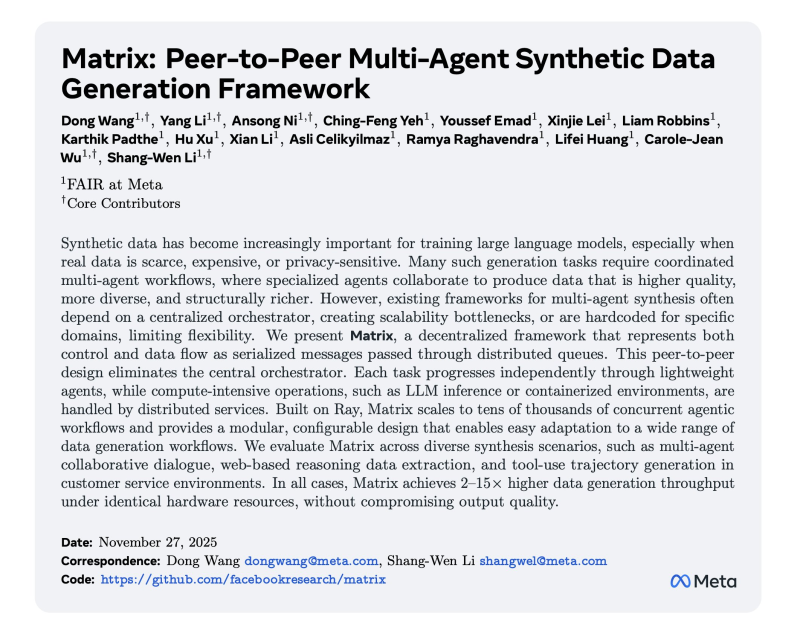⬤ Meta released Matrix, a peer-to-peer multi agent framework that addresses the growing need for varied, high quality training data. Single-model pipelines tend to repeat themselves and fail to supply the range required for complex reasoning. Matrix replaces the single controller with a team of specialized agents that cooperate without a central manager - together they produce synthetic data that is richer plus structurally more varied.

⬤ All control and data move as serialized messages that travel through distributed queues - every agent interaction stays decentralized. One model writes questions, a second writes answers, a third judges quality. After multiple conversation turns but also quality checks, only the best data enter the final training set. The result is diversity that resembles human authored content and removes the weaknesses of single model pipelines. The framework supports many workflows - joint reasoning, tool use generation, web data extraction as well as others.
Matrix represents both control and data flow as serialized messages that move through distributed queues enabling fully decentralized interactions among agents.
⬤ The distributed layout raises throughput by a factor of two to fifteen on identical hardware. Lightweight agents solve simple tasks locally - heavy work like large model inference runs on distributed services. Built on Ray, Matrix scales to tens of thousands of concurrent agent workflows or allows modular re configuration for different data needs. The absence of a central orchestrator removes the scalability bottlenecks seen in orchestrator based systems and increases flexibility across domains.
⬤ Matrix continues Meta's push to accelerate synthetic data production, a priority as AI model requirements expand. By raising throughput supporting decentralized coordination also capturing subtler interaction patterns, Matrix meets market expectations for scalable multi agent systems. As demand for diverse synthetic data keeps rising, the framework may shape future AI training pipelines and stimulate wider industry innovation.
 Usman Salis
Usman Salis

 Usman Salis
Usman Salis


